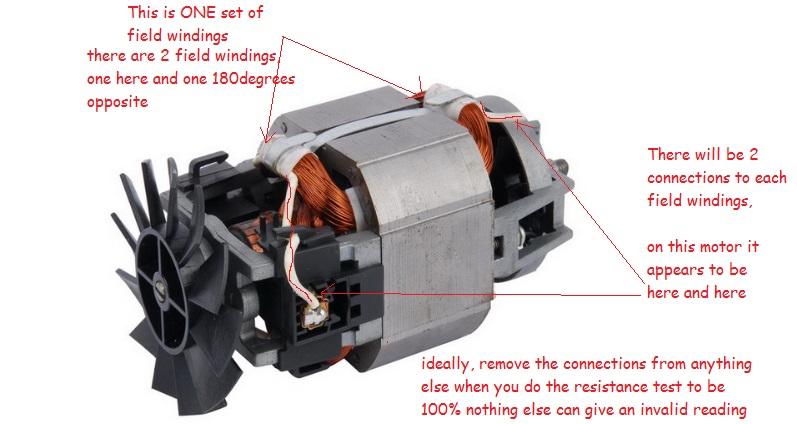What are the little coils with cable wrapped around them?
This motor is totally dead.
Power is getting to it but nothing works
What could have gone wrong with it and what testing would confirm the fault
Not really sure what readings I should be getting for the resistance of the windings, but the winding to the case is >299mohms
View media item 76470 View media item 76471
Thanks
This motor is totally dead.
Power is getting to it but nothing works
What could have gone wrong with it and what testing would confirm the fault
Not really sure what readings I should be getting for the resistance of the windings, but the winding to the case is >299mohms
View media item 76470 View media item 76471
Thanks


